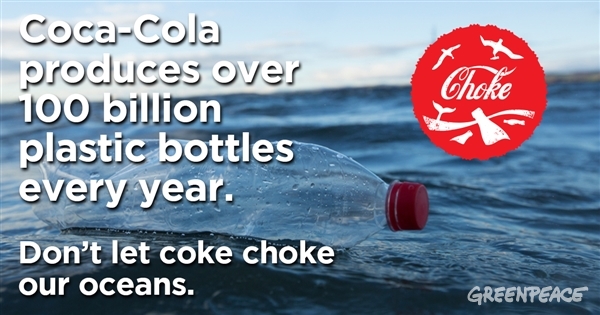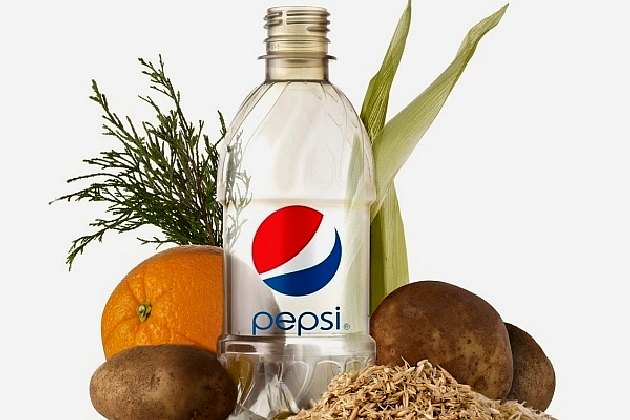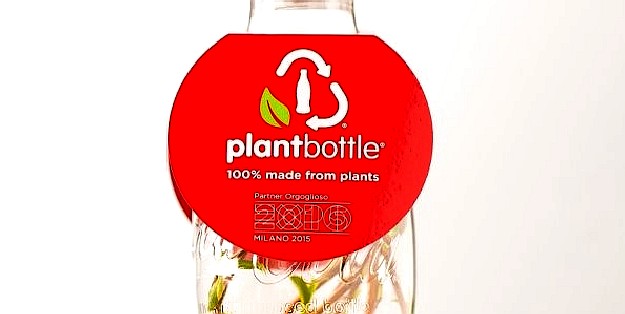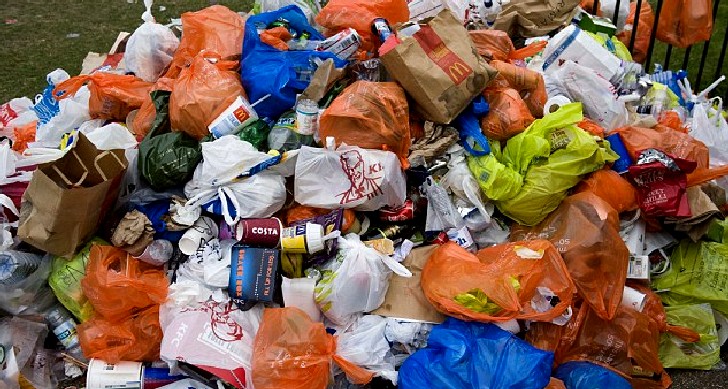|

FISHING
FOR PLASTIC - Coca Cola produce an excellent drink that is so popular
that this company needs to produce billions of PET bottles every year to
keep up with demand. Other soft drink companies also produce a staggering
quantity of drinks in PET
plastic bottles, such as Pepsi
Cola. Then there are the supermarket own brands who use the same
packaging and do their best to capture a share of the soft drinks market
with packaging that is designed (in some measure) to emulate the major
players.
GREENPEACE
MAY 12 2017: PLASTIC POLLUTION - WHY COCA-COLA BEARS RESPONSIBILITY
While various solutions are being proposed to tackle this daunting problem, it’s clear that to stop the flow of plastic into the ocean, we need to turn the tap off at source. This means ending the era of throwaway plastic. For those of us who live for practical to-do lists, how do we do that?
We’ve kicked off our campaign starting by focussing in on single-use plastic bottles and calling for the companies that are responsible for selling them to us to commit to drastically reducing their plastic footprint, by ditching throwaway plastic. Studies estimate that 600 billion bottles will be produced globally this year - and Coca-Cola alone is responsible for a sixth of all plastic drinks bottles sold around the world.
But isn’t it up to individuals not to litter, and to make sure the plastic bottles they use are recycled?
Well, we all have a responsibility to reduce our plastic footprint - individuals, businesses and governments. But there is such a huge amount of plastic flowing into the ocean that we need to tackle this problem at source.... just like an overflowing sink needs the tap turned off before the
water on the floor gets mopped up! And the plastic taps of the world are flowing and flowing and will continue to do so to the detriment of wildlife and people.
So that’s why we’re prioritizing the reduction of the enormous amount of single-use plastic packaging that is being created and sold to us. Even if all bottles were disposed of properly, our garbage collection and recycling systems simply cannot keep up with the amount of plastic we’re using. In just the province of Ontario, an estimated one billion bottles each year end up in the landfill or the environment. And even people’s valiant attempts to avoid plastic on their grocery shops is challenging at best, impossible in many cases.
While it’s important that everyone does their part, it’s not enough that individuals simply recycle more, as the big drinks companies claim. Creating bottles with a tiny amount of recycled content also doesn’t equal the scale of this problem. Without drastic action from the industry itself, we won’t succeed in halting the flow of plastic into the oceans.
Given that Coke sells over 100 billion single-use bottles every year, if the company takes credible action to reduce its plastic footprint and embrace alternative delivery systems and refillable packaging, that can make a massive difference to plastic bottle pollution.
Coca-Cola has previously used its influence across the soft drinks sector and its global supply chain to boost momentum for phasing out highly polluting greenhouse gases from its cooling units. Now it needs to do the same for its plastic footprint.
That’s why we’re encouraging people to demand change from these companies. You can now join over 82,000 people who’ve written directly to Coke’s European CEO to tell him that ocean plastic pollution must end - and that he can’t keep washing his hands of the problem.
Our oceans simply cannot stomach any more plastic - tell Coke to stop choking our oceans.
EMAIL COCA COLA'S CEO NOW
Plastic pollution is one of the greatest threats facing our oceans. Up to 12 million tonnes of plastic is entering the oceans every year. This is affecting sea life - one in 3 turtles and 90% of seabirds are now estimated to have ingested plastic. Plastic is even ending up in the seafood on our plates.
The plastic bottles that are found littering beaches around the world are a major part of this ocean plastic problem.
Coca-Cola produces an estimated 100 billion throwaway plastic bottles every year - and billions of these will end up on beaches, in landfill and in the sea.
We’re calling on the soft drinks giant to reduce their plastic footprint and stop Coca-Cola bottles choking our oceans.
THE
MESSAGE
Plastic pollution is one of the greatest threats facing our oceans. An estimated 12 million tonnes of plastic enter the oceans every year – a truck load of rubbish every minute.
Plastic can now be found at every corner of the world’s oceans – from bottles and packaging to tiny
microplastics - threatening one of our planet’s key life-support systems, harming marine life and even ending up in the seafood on our plate.
We know that single-use plastic bottles are a major source of ocean plastic pollution and are found littering beaches around the world.
As the biggest soft drinks company in the world – selling an estimated 100 billion single use plastic bottles every year worldwide - Coca-Cola bears a particular responsibility for ocean plastic pollution.
Further as one of the richest companies in the world and a leader in your sector Coca-Cola has the power and resources to help solve this problem.
I understand you are currently reviewing and updating your sustainable packaging strategy. I urge you to ensure that this clearly sets out commitments, targets and timelines to drastically reduce Coca-Cola’s plastic footprint.
That means committing to phase out the use of throwaway plastic packaging, embracing reusable models and innovative delivery systems and ensuring all remaining packaging is made from 100% post-consumer recycled content.

BIODEGRADABLE
BOTTLE? - It sounds like a brilliant idea, but what happened. Did this
bottle go into production. If not, why not?
CHRISTIAN SCIENCE MONITOR 2011 MARCH - PEPSI NO MORE PLASTIC
PepsiCo Inc. unveiled a new bottle Tuesday made entirely of plant material that it says bests the technology of competitor Coca-Cola and reduces bottles' carbon footprint.
The bottle is made from switch grass, pine bark, corn husks and other materials. Ultimately, Pepsi plans to also use orange peels, oat hulls, potato scraps and other leftovers from its food business.
The new bottle looks, feels and protects the drink inside exactly the same as its current bottles, said Rocco Papalia, senior vice president of advanced research at PepsiCo.
"It's a beautiful thing to behold," he said. "It's indistinguishable."
PepsiCo says it is the world's first bottle of a common type of plastic called PET made entirely of plant materials.
Coca-Cola Co. currently produces a bottle using 30 percent plant-based materials and recently estimated it would be several years before it has a 100 percent plant bottle that's commercially viable.
"We've cracked the code," Papalia said.
PepsiCo announced the discovery Tuesday and said it plans to test the product in 2012 in a few hundred thousand bottles. Once the company is sure it can successfully produce the bottle at that scale, it will begin converting all its products over.
That could mean a switch of billions of bottles sold each year. Of Pepsi's 19 biggest brands, those that generate more than $1 billion in revenue, 11 are beverage brands that use PET.
Scientists said the technology is important innovation in packaging.
"This is the beginning of the end of petroleum-based plastics," said Allen Hershkowitz, a senior scientist with the Natural Resources Defense Council and director of its waste management project. "When you have a company of this size making a commitment to a plant-based plastic, the market is going to respond."
Coca-Cola said it welcomed other advances in packaging, but noted that it has scaled up use of its own plant-based bottle since introducing it in 2009. It also says it has demonstrated a 100 percent plant bottle in the lab and is still working to ensure it is commercially viable.
There are other plant-based plastics available or in development, but Herskowitz said these are not environmentally preferred because they typically use plants grown solely for that purpose rather than using the estimated 2 billion tons of agricultural waste produced each year. And these alternative plastics cannot be recycled.
PET plastic is a go-to material for packaging because it's lightweight and shatter-resistant, its safety is well-researched and it doesn't affect flavors. It is not biodegradable or compostable but it is recyclable.
A completely plant-based PET could change the industry standard for plastic packaging. PET is used in beverage bottles, food pouches, coatings and other common products.
Traditional PET plastic is made using fossil fuels, including petroleum, a limited resource that's rising in price. By using plant material instead, companies reduce their environmental impact.
Pepsi, based in Purchase, N.Y., said it has had dozens of people working on the process for years. While PepsiCo wouldn't specify the cost to research and design the new bottle, Papalia said it is in the
millions of
dollars.
PepsiCo will pilot production of the new bottle in 2012. Upon successful completion of the pilot, the company intends to move directly to full-scale commercialization.
PEPSICO'S
BIO PET BOTTLE - WHAT HAPPENED?
PepsiCo offers the world's largest portfolio of billion-dollar food and beverage brands, including 19 different product lines that generate more than $1 billion in annual retail sales each. Our main businesses
- Quaker, Tropicana, Gatorade, Frito-Lay, and Pepsi Cola - also make hundreds of other enjoyable and wholesome foods and beverages that are respected household names throughout the world. With net revenues of approximately $60 billion, PepsiCo's people are united by our unique commitment to sustainable growth by investing in a healthier future for people and our planet, which we believe also means a more successful future for PepsiCo. We call this commitment Performance with Purpose: PepsiCo's promise to provide a wide range of foods and beverages for local tastes; to find innovative ways to minimize our impact on the environment, including by conserving energy and water usage, and reducing packaging volume; to provide a great workplace for our associates; and to respect, support, and invest in the local communities where we operate. For more
information visit www.pepsico.com.

COKE'S
PLANT BOTTLE - Is it too expensive or is it unstable. Or, maybe it
does not biodegrade, so is worse than PET, where (apparently) the bio
bottles are not recyclable. There must be a pretty good reason why the
switch to plant based plastic has not taken place. If you know the answer
to this question please let us know.

SUSTAINABLE
BRANDS JUNE 2015
The Coca-Cola Company today unveiled the world’s first PET plastic bottle made entirely from plant materials at the World Expo — Milan.
PlantBottle packaging is Coca-Cola’s vision to develop a more responsible plant-based alternative to packaging traditionally made from fossil fuels and other non-renewable materials. PlantBottle packaging uses patented technology that converts natural sugars found in plants into the ingredients for making PET plastic bottles. The packaging looks, functions and recycles like traditional PET but has a lighter footprint on the planet and its scarce resources.
Nancy Quan, Coke’s Global Research and Development Officer, said, “Today is a pioneering milestone within our Company’s packaging portfolio. Our vision was to maximize game-changing technology, using responsibly sourced plant-based materials to create the globe’s first fully recyclable PET plastic bottle made entirely from renewable materials.”
In November 2013, Coca-Cola teamed up with Danone, Ford, Heinz, Nestlé, Nike, P&G, Unilever and
World Wildlife Fund (WWF) to form the Bioplastic Feedstock Alliance (BFA), a coalition supporting the responsible development of plastics made from plant material and promoting a more sustainable future for the bioplastics industry. BFA focused on guiding the responsible selection and harvesting of feedstocks — such as sugar cane, corn, bulrush and switchgrass — used to make plastics from agricultural materials.
WWF’s Sustainable Research and Development Manager, Erin Simon, said: “With every technological advance made in the bioplastic industry comes the opportunity to continue to scale the impact of more sustainable production for the materials we depend on today.
“We’re working with major companies around the world, including The Coca-Cola Company, to consider all the trade-offs involved with plant-based plastics. We all want to make sure that as we shift from fossil fuel-based feedstocks to biobased feedstocks for materials, we provide net positive solutions without putting additional strain on precious land and water resources.”
“Plant-based plastics, if responsibly produced, allow us to continue to benefit from the tremendous value that plastics provide but without the negative environmental effects of using
fossil
fuels,” Simon added.
Coke’s new PlantBottle packaging uses sugarcane and waste from the sugarcane manufacturing process; both materials meet the Company’s established sustainability criteria used to identify plant-based ingredients for PlantBottle material, which include demonstrating improved environmental and social performance as well as avoiding negative impacts on
food
security.
PlantBottle can be used for a variety of packaging sizes and across water, sparkling, juice and tea beverage brands. Since the 2009 launch, Coke has distributed more than 35 billion bottles in nearly 40 countries using its original PlantBottle packaging, which is made from up to 30 percent plant-based materials. The company estimates the use of PlantBottle packaging since launch has helped save the equivalent annual emissions of more than 315,000 metric tons of
carbon dioxide.

DAILY MAIL 5p CHARGE JAN 2014
- The charge in England will not apply to biodegradable or paper bags and small shops employing less than 250 people will be exempt.
Conservation and anti-litter campaigns have criticised the complex regime for England, saying it will be less effective in controlling the litter and waste caused by the bags.
The big supermarkets are also critical, saying it will make their lives more difficult by having different rules for different parts of the UK.
Even the Association of Convenience Stores, which represents corner shops, say it would be better if there was a single uniform scheme of bag charges that also applied to its members.
The EFRA committee is currently carrying out a short inquiry into the adoption of the 5p bag charge in England, however it has separately published an annual review saying it should be brought forward.
The 11 man all-party committee is chaired by Conservative MP, Anne McIntosh, and includes five other Conservatives.
The review states: ‘Plastic bags are a major cause of seaborne pollution, and a serious hazard for marine life.
‘The Government estimates that in 2012, supermarkets gave out over eight billion single-use carrier bags across the UK, equating to approximately 120 bags per person.
‘While the use of these plastic carrier bags in England has increased since 2010, usage was cut dramatically by the Republic of Ireland after charges were introduced in 2002.
A similar charge in Northern Ireland has reduced carrier bag usage since April 2013. Supermarkets in Wales reported a drop in use of up to 76per cent after a charging scheme was brought in two years ago.’
They add: ‘We are pleased that the Government has finally agreed to impose a charge for single-use plastic carrier bags in supermarkets and larger food retailers.
However, we are disappointed that the charge will not come into effect in England until 2015, despite evidence of its success in reducing plastic carrier bag usage in other parts of the UK and Ireland.
‘Reducing the number of single-use carrier bags which are given away is a quick win: reducing both waste and environmental pollution with little effort.
‘Given the evidence elsewhere, we recommend the early introduction of the charge.’
Environment minister, Dan Rogerson, recently told MPs that the 5p for plastic bags will cut usage by 60-80 per cent and so vastly reduce pollution and litter.
The resulting reduction in carbon emissions would be the equivalent of permanently taking up to 2.8million cars off the road, he said.
The proceeds from the levy, which comes as victory for the Daily Mail’s Banish the Bags campaign, will be given to good causes.
Community organisations and charities will get up to £70million a year to deal with the impact of plastic pollution on wildlife and the environment.
Litter policy expert at the Marine Conservation Society, Dr Sue Kinsey, criticised the delay and complexity of the bag charging scheme planned for England.
One
thing is for sure, not a single penny raised from the 5p charge is going
towards Ocean
Regeneration.
GREENPEACE
CONTACTS
Toronto (main office)
33 Cecil Street
Toronto (Ontario)
M5T 1N1
Phone: 1-800-320-7183 FREE (toll-free)
Email: supporter.ca@greenpeace.org
Montreal
454 av. Laurier East
Montreal (Quebec)
H2J 1E7
Phone: 1-800-320-7183 (toll-free)
or 514-933-0021
Vancouver
1726 Commercial Drive
Vancouver (British Columbia)
V5N 4A3
Phone: 1-800-320-7183 (toll-free)
or 604-253-7701
GUARDIANS -
[LEFT] One
DIESEL
- Here you
LINKS
& REFERENCE
http://www.sustainablebrands.com/news_and_views/packaging/sustainable_brands/coke_unveils_worlds_first_entirely_plant-based_pet_bottl http://www.alternative-energy-news.info/pepsi-green-pet-bottle/ http://www.pepsico.com/live/pressrelease/PepsiCo-Develops-Worlds-First-100-Percent-Plant-Based-Renewably-Sourced-PET-Bott03152011
http://www.greenpeace.org/canada/en/blog/Blogentry/plastic-pollution-why-coca-cola-bears-respons/blog/59398/
https://www.csmonitor.com/Business/Latest-News-Wires/2011/0315/Pepsi-bottles-no-more-plastic
https://www.wastefreeoceans.org/ https://www.wastefreeoceans.org/fishingforlitter press@plasticsoupfoundation.org
https://skyoceanrescue.com/
ACIDIFICATION
- ADRIATIC
- ARCTIC
- ATLANTIC
- BALTIC
- BAY
BENGAL - BERING
- CARIBBEAN
- CORAL
- EAST
CHINA SEA
ENGLISH
CH - GOC
- GULF
GUINEA - GULF
MEXICO - INDIAN
-
IOC
- IRC
- MEDITERRANEAN
- NORTH
SEA - PACIFIC
- PERSIAN
GULF - SEA
JAPAN - STH
CHINA - PLASTIC
- PLANKTON
- PLASTIC
OCEANS - SEA
LEVEL RISE - UNCLOS
- UNEP
WOC
- WWF

|



